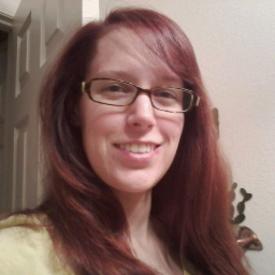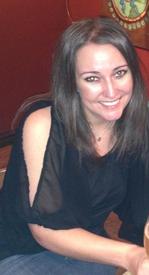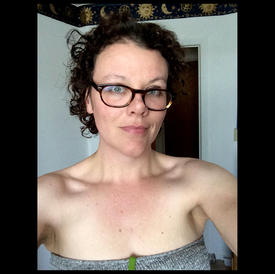Poll on Food Scale

Nillabee
Posts: 7 Member
I know this has been asked a million times before and I have spent quite a bit of the day reading the forums on food scales etc...however, how many of you use one? Do you find it absolutely necessary? Why not just read the food label?
If you use one, does the scale have the calorie, fat, carb, option etc?
If you do not use one--why not?
I'm still on the fence about a food scale...just not sure it's worth the time or really going to make that huge of a difference. I have been looking at a scale that also displays the calories, carbs, and fats based on the weight of the scale (not sure if I even need that).
Sorry for sounding a little naive, but after a day of researching this I'm still just not sure about it...Thanks for the advice!
If you use one, does the scale have the calorie, fat, carb, option etc?
If you do not use one--why not?
I'm still on the fence about a food scale...just not sure it's worth the time or really going to make that huge of a difference. I have been looking at a scale that also displays the calories, carbs, and fats based on the weight of the scale (not sure if I even need that).
Sorry for sounding a little naive, but after a day of researching this I'm still just not sure about it...Thanks for the advice!
0
Replies
-
If you are not using a food scale, you are not counting calories.0
-
I use a food scale, well for now I'm using a mailing scale until I can get a food scale.
I do measure my food and I try to be as accurate as possible.0 -
YES YES YES to having (and using) a food scale. It's on my counter, sitting right there, used many many many many times during the day.
You ask: "Do you find it absolutely necessary? Why not just read the food label?"
If a label says 2 oz pasta dry, how would you know to eat 2oz dry if you don't have something to weigh it on? Seeeeeee? 0
0 -
i like to use mine because it makes measuing easier for recipes, and because i am anal that i am actually eating the amount that i think i am. i love it, i use it several times a day0
-
I just bought one!!!! It did come with a manual that had a list of foods and calories per ounce, etc. but it is important because I realized I was not accurately taking into account my calories. Like today for instance, I am going to have a piece of frozen chicken breast. The serving size on the label says 4 ounces, and each piece of chicken should be 4 ounces right? WRONG!!! This piece of chicken was almost 8 ounces!!!! 2x the amount I was accouting for before I got the scale!!!! So, I would say yes a food scale is important!!!!0
-
Go look at this though perhaps you've seen it:
http://www.myfitnesspal.com/topics/show/872212-you-re-probably-eating-more-than-you-think
My scales has oz/lbs and once I watched the youtube video within the above post, I realized that I need a new scale that does grams. I wouldn't take it to a restraurant with me but I do weigh at home.0 -
YES YES YES to having (and using) a food scale. It's on my counter, sitting right there, used many many many many times during the day.
You ask: "Do you find it absolutely necessary? Why not just read the food label?"
If a label says 2 oz pasta dry, how would you know to eat 2oz dry if you don't have something to weigh it on? Seeeeeee?
The 2 ounces of pasta thing - IF you want me to eyeball 2 ounces of pasta - i could feed a family of 4. However, when I weigh it, I can only feed myself.0 -
I don't use one. I've tinkered with serving size enough that I'm hitting my weekly target without one. If you find that you're not meeting your goals then I would suggest one.
Also, calories in food can be off based on how the FDA allows them to be labeled so even prepackaged food may be off when using a scale.0 -
Well I guess I've always just kind of taken the nutrition info from label...ie 14 triscuits, 1 cup of pasta, 1 egg, 1 piece of toast, etc. Like for breakfast I have a piece of toast, an egg, 2 turkey sausage links. Why would I need a food scale for that? For dinners I cook a lot of recipes off skinnytaste.com and just use her nutritional info...how would the scale help that? I really don't count veggies in my diary because I feel they are so low calorie they don't really need to be counted.
Again, not trying to sound naive, just looking for awesome advice
Thanks!0 -
You don't count vegetables? (what about fruit?)Well I guess I've always just kind of taken the nutrition info from label...ie 14 triscuits, 1 cup of pasta, 1 egg, 1 piece of toast, etc. Like for breakfast I have a piece of toast, an egg, 2 turkey sausage links. Why would I need a food scale for that? For dinners I cook a lot of recipes off skinnytaste.com and just use her nutritional info...how would the scale help that? I really don't count veggies in my diary because I feel they are so low calorie they don't really need to be counted.
Again, not trying to sound naive, just looking for awesome advice
Thanks!
You might not need to weigh a piece of toast but what if you want peanut butter or butter on that toast? It's much more accurate to weigh things like that in grams.0 -
I do not use one but am thinking about getting one. I am a month in to this and would like to make sure I am doing everything correctly. I measure a lot or count (nuts/chips) so I dont think I am tooo far off although maybe I am. As far as ounces go I guess, I had a baby so i am familiar with ounces and measuring formula in bottles. I know that sounds weird but that is how I am doing it until i get scale should I decide to get one.0
-
I have a food scale, but I have to admit that I don't use it that often. I know that it would be more accurate, but really calorie counting is estimation anyway. I look at serving size, and try to estimate based on that...so if say I have a can of beans, and it says that there are two servings in there, I try to get about half. I figure I'll eat the other half the next day anyway, so what difference does it make? So at the end of the day am I really netting 1326 calories? Probably not. But I figure if I'm losing at a reasonable safe rate, then I'm guessing close enough.
Now if I were not losing at what MFP says that my calories should be, that's the first thing I would do...is start weighing and measuring more, because then I would figure my estimations were off.0 -
Can't just use the food label on foods that don't come with labels, like most vegetables, fruits, grains, beans, cuts of meat, etc.
I love having the scale which takes all the 'guesstimation' out of how much spinach to pack into a one cup measurer, for example. If I'm going to take the time to log, I might as well be as accurate as I can be. I've rarely had to edit or correct any food in the database that is listed by grams.0 -
I use the scale all the time. One reason is most of my foods do not come with nutritional labels. The ones that do are off on their serving sizes. For example, my carrots say a serving size is about 5 carrots or 28g. When you weigh out the carrots it more like 10 carrots.
If I want to accurate I need to weigh. It's that simple.0 -
I'd probably rate food scale as the most helpful tool thus far for me. I was way off of everything I estimated before I got a food scale. I am way better at estimating now that I know what certain weights of my most used foods look like, but I still use the scale to be sure.0
-
I use my scale every every time I eat. Mostly convert it to grams to be exact.0
-
When I got serious about our food habits I bought 3 things- measuring spoons, measuring cups and a food scale. I had a manual one but adding the digital model that can measure oz, grams and pounds is great! I think you really need to portion your food to know how much you are eating. That along with reading and understanding the labels are critical. Ever try to figure out a 42 gm portion without a scale???
Good luck with your journey!0 -
I have a small digital one. I use it constantly.0
-
I need to buy a food scale soon.0
-
If you are not using a food scale, you are not counting calories.
THIS
Especially for volume measurements of non-liquid items. For example, how many strawberries is in 1/2 a cup? No way to know without knowing how big the strawberries were and how tightly they were packed. The same thing is true for flour which is why many bakers, me included, use weight measurements to make bread.
As to scales, all you need is a $20 digital one from a big box store or online. Digital means you can measure in either English or metric and can set the tare button to add a second ingredient.
For example, I most recently ate 1 serving of cottage cheese with one serving of raisins stirred in (and a little cinnamon which I didn't bother to weigh). Right on the cottage cheese container it tells me 1 serving is 114 grams for 110 calories. On the raisin bag it says 40 grams is a serving of raisins. Put the bowl on the scale and clicked the "tare" button to get it back to zero. Then I measured in the cottage cheese, put the dirty spoon in the bowl and reset to zero. Next I measured in the raisins. Voila. Done. And no extra measuring cups dirty either.0 -
I use my digital food scale for everything, except liquids I use measuring cups for that, including peanutbutter and mayo!! Most important gadgets for weight loss is 1. food scale 2. MFP 3. Fitbit ......love all these tools!!!0
-
You'll be surprised to learn that by not using a food scale you're very (very) likely over-eating. I was surprised how differently peanut butter looks weighed in grams vs. in a measuring spoon, or salad dressing or something like cottage cheese, even cereal.0
-
My food scale has seriously been more worth it than I ever thought it would be! I wish I had gotten one sooner! So many foods I underestimated or overestimated based on the serving sizes given. They are soooo different when you actually weigh them out. Peanut butter and hummus serving sizes have gotten much smaller since I started using my scale! LOL 2 tablespoons I would have given myself were way over the 28 grams that is an actual serving. Especially with peanut butter, that is a big difference! With meat, I was waaayyyy underestimating the amount that was a serving, and only giving myself about half what I could have had!! That is a lot of missing protein!
In short, my food scale has made a huge difference!! Now I am getting good, I can eyeball the exact amounts of foods i eat often and then weigh to see if I was spot on or not :laugh:0 -
chew on this.....
in the order they happened
1) got fed up of being fat
2) started eating smaller portions without a food scale, you know b/c im serious now
3) bought a food scale
4) weighed my food on scale and said dayum, i've been underfeeding myself for weeks
my food scale ensures i maximize the amount of food i am allotted every day0 -
I guess I don't count (calories). I have never used a scale and I probably never will. I don't even measure my food usually. I did at first, just to get an idea what 1 cup, or 2 Tbsp looks like. Rather than counting, I guess, I guesstimate. People can say what they want about the importance of accuracy and all that, but you won't obtain absolute accuracy even if you weigh every morsel of food that passes your lips -- because the reported calories are for food that was measured and burned in a bomb calorimeter long before you thought about dieting. Since then, the food manufactures and producers have produced other food, using similar materials and processes, but they are not exactly the same. There is variation in every process, even food production.
http://www.dummies.com/how-to/content/how-nutritionists-measure-calories.html
I weigh myself every day and use mathematical formulas (actually apps that apply those formulas to my raw data) so I have a fairly realistic trend of my weight. Since the basic formula about human nutrition doesn't change -- energy in minus energy expended minus waste.
I recommend you read the Hacker's Diet. At least look at this page:
http://www.fourmilab.ch/hackdiet/e4/rubberbag.html0 -
YES YES YES! Get one! I had no idea how much of a difference it would make before I started using one. I often play a game where I try to guess how many ounces are on my plate, then I weigh it and I'm often WAY off.
Say for example, you're eating a chicken breast....How do you know how much you're eating if you don't weigh it? I often don't eat a whole breast, depending on how hungry i am. I'd much rather be accurate and weigh the piece of chicken, instead of going with an estimate of "1/2 chicken breast".
Or, say I'm making a side dish that supposedly makes 4 servings. When I go to split it into containers, I weigh the whole thing first, then I know thta I'm splitting it exactly in 4 servings, instead of just spooning it out and eyeballing it.0 -
I use the scale all the time. One reason is most of my foods do not come with nutritional labels. The ones that do are off on their serving sizes. For example, my carrots say a serving size is about 5 carrots or 28g. When you weigh out the carrots it more like 10 carrots.
If I want to accurate I need to weigh. It's that simple.
This!
1/2 cup oats (40g) is more like 1/3 cup oats if you weigh it. So if you're using a 1/2 cup measure, you're eating more than the label says you are.
Same goes for 2/3c (81g) cut green beans that is 30 calories - in reality 81g of beans is more like 1 1/4 cups! So in t his case if you measure 2/3 cup, you're eating way LESS than the label says.
What about rice? Do you really cram it into the measure cup, or are you supposed to put some in there and lightly fill it? One way gets you a lot more than the other; if you're weighing it, you know.0 -
The largest variance in the food process is the labeling. Labels will often suggest a number of pieces in addition to the grams or ounces per serving.There is variation in every process, even food production.
For example a snack item may say 1 serving, 40gms (about 11 pieces) is 200 cals. If you actually weigh the serving you find out that 6 pieces equal 40 grams. If you didn't weigh the food and assume that 11 pieces is in fact a serving, you're consuming nearly double the calories that you think you're consuming. Pile up enough 200 calorie errors every day and eventually you sprout a new "Why Am I Not Losing" thread here on the forums
It's been a great help to me in learning to control portion size.0 -
Thanks so much for all the advice--from every view point! I am convinced to get a food scale now...I have a very funny feeling my portions are a lot bigger, even though I feel like a pro at estimating portion sizes. This should be interesting!!0
-
I lost most of my weight without a food scale, but I've found that it's helped me learn more about portion sizes. Oddly, I grew up with one and prefer it for baking, but I never bought one until recently.0
This discussion has been closed.
Categories
- All Categories
- 1.4M Health, Wellness and Goals
- 398.1K Introduce Yourself
- 44.7K Getting Started
- 261K Health and Weight Loss
- 176.4K Food and Nutrition
- 47.7K Recipes
- 233K Fitness and Exercise
- 462 Sleep, Mindfulness and Overall Wellness
- 6.5K Goal: Maintaining Weight
- 8.7K Goal: Gaining Weight and Body Building
- 153.5K Motivation and Support
- 8.4K Challenges
- 1.4K Debate Club
- 96.5K Chit-Chat
- 2.6K Fun and Games
- 4.8K MyFitnessPal Information
- 12 News and Announcements
- 21 MyFitnessPal Academy
- 1.5K Feature Suggestions and Ideas
- 3.2K MyFitnessPal Tech Support Questions
























